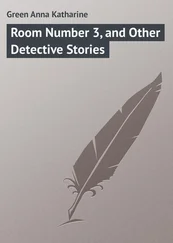When Janice kept looking he said, ‘I walked. I walked all the way back. Did me more good than going there.’
He eyed his watch. Ten past five. He took off his coat. Alan had closed shop for the day, so it seemed. Good. Well, Alan would be ruling the roost before long. He peered into the open door of his own office as if into a room that some other person had left.
‘So, Janice, we have. . er. . Mrs Roberts.’
As if Mrs Roberts hadn’t become his unexpected lifeline.
Even as he spoke a figure in a black coat and red scarf entered where he’d just entered, a woman of forty or so, not unattractive, but etched by an anxiety she was clearly trying to hide.
Was it so difficult then, to wear a disguise?
‘Mrs Roberts?’ he said and, when she said yes, held out a hand and smiled. ‘David Eliot.’ How strange his own name sounded. ‘And this is our receptionist, Janice. You’ve caught me on the hop. I’ve just returned from an appointment of my own.’ She only blinked at this. ‘So then—’
And now he extended an ushering arm, in exactly the same way, he realised, as Grant had done at his consulting-room door, just as all professional people habitually do.
He’d quickly made his assessment: Well, she’s not one of the hard-bitten ones, out to grab all she can. She’s one of the ones (he seemed to see this more clearly than he’d ever done) who thought this sort of thing could never happen to her, not to her — that her marriage, her life was all soundly, safely in its place. She’s putting up a good front of businesslike poise, but really she’s lost, she’s all at sea. She’s looking out over a gulf which was never meant for her and which she has no idea how to cross.
They sat down. He made some lawyer’s small talk. He looked at her, at the notes he had. Then he leant back patiently and attentively in his chair.
‘Now, in your own words, in your own time, tell me all about it.’
HE HAD THE wretchedest of coach journeys, a grey relentless drizzle shrouding everything, clogging the roads when they should have been at their firmest and denying him any farewell visions of apple-hung orchards or golden stooks. Harvest time and every field sodden. And all the while the familiar desolation claiming him, like some awful return to school.
They changed horses late in Totnes, and night had fallen when they arrived. It had been falling all day. So, he would have to wait now till dawn. It was always some small relief when you first saw the ships. He saw a distant twinkle of lanterns, through the gloom, out on the Sound.
So, he must wait. And then no doubt — he must wait. It was his experience that you sped upon their lordships’ bidding only to languish indefinitely pending further orders. His chest was taken into the Bell. He had intended making some better arrangement for his shore quarters only to fall back on the known devil. It was convenient. It was convenient to say, ‘I am at the Bell.’ He had no money for grandeur.
He was shown to his chamber. He knew it — or one like it. He had been confined here before, as had God knows how many others like him. It was strange that it felt so immediately incarcerating when it was bigger by far than any pitching cabin.
He took off his hat and cloak and at once felt chilly. He inspected the supply of candles. There was a meagre fire that appeared to have been unwillingly lit. It was only just September after all. September, 1805. In August, three weeks ago, he had passed his twenty-fifth birthday. So — he would not have to note it solely to himself at sea. Was it noteworthy?
He removed his gloves. He resisted an attack of the ancient urge to chew his fingertips. He pissed into the chamber pot. It was too early to sup, and if he supped — then what? He would sit by this skulking fire with this cheerless companion who was himself. He would commence the melancholy business of writing letters — letters as if written on the eve of sailing, though the eve of sailing might be three weeks hence.
If he made himself visible and if he were lucky (or unlucky) some other soul in blue and gold might hail him and invite him to dine. This might allay or aggravate his dejection. ‘Wives and sweethearts — may they never meet.’ But he had neither. He was the Navy’s wholly. So (he always told himself) he was spared the much-sung pangs. He had only these other pangs that came from some deep and solitary place within him.
Or, not to mince the matter: he had his mother and his two older sisters, Emily and Jane. His two older brothers, Arthur and George, moved in spheres beyond him and were both of an age, it sometimes seemed, to have been his father. And then there was his father. .
He was, in short — and he would only dwell on it in these dire intervals before embarkation — the youngest: the late and unexpected addition, the afterthought (though no thought could have gone into it), a plaything for his sisters, a thing of no account to his brothers and a conundrum to his parents.
Yet to the womenfolk at least he would write his fond, unmanning, still shore-bound letters — disguising his real misery — as if he were still the weeping schoolboy who had forgotten to pack his handkerchief. My Dearest Emily. . My Dearest Jane. .
How little they knew how their pet rag-doll could rasp out an order. He had sea legs (if he were allowed to find them) and sea lungs to go with them. And of what should he write to them now, long as it was since he had last beheld them? Of a perilous expedition by coach from Bridgwater?
One day his father had summoned him to the library and had spoken to him as if from an immense and patient height. It was so that he would be told the modest nature of his allowance, but it was also so that he would be given words of general advice. He had trembled before this seldom-seen figure as he would one day tremble before admirals. He would remember — as he remembered now — how his father’s face briefly softened as if in recognition of his discomfort.
His father had said, ‘My dear Richard, you are a member of the Longridge family. You are neither a king nor a commoner. You will understand all you need to know for your conduct in this world if you understand these words: know your place.’ His father’s features had hardened again and his eyes had seemed to probe him, as though behind the words, clear and implacable enough, were some other message.
The library clock had chimed, painfully, the morning hour. So distant had he felt from his father at this point that his father might as well have been a king and he himself the lowest of commoners. Or his father’s bastard child. It had dawned on him afterwards — gradually but with a nagging lucidity — that, though the matter was apparently being charitably concealed, this might indeed be the truth of it. It was not in his interest to question anything. It was in his interest to conspire in the deception and be grateful — to write milksop letters to his mother and sisters.
He was perhaps, though it was not in his interest ever to verify it, what his schoolfellows had called a ‘fitz’.
He prodded the disobliging fire with the poker. He recalled his mother’s once constant refrain to the maid, like some further, if unwitting, piece of parental advice: ‘A feeble fire, Betty, is worse than an empty grate.’
He saw again his schoolfellows, remembered their plaintive names. Ashmole, Palgrave, Wilkes. .
Since he had not, even with the advantages of education, overcome by his own ingenuity the problem of his essential superfluity, it came down to the Army, the Navy or the Church. He preferred blue to red, and preferred either to the black-and-white absurdity of being a parson in a pulpit.
He hadn’t thought much, strangely, about a thing called the sea. He was acquainted with it now. And he hadn’t known that service in the King’s Navy, even when he was commissioned and sea-seasoned (even more so then) would involve these vile periods of limbo and of dismal self-exposure — a creature neither of land nor sea, caught between a dubious homesickness and three or four days, depending on the course and the weather, of actual vomiting.
Читать дальше












